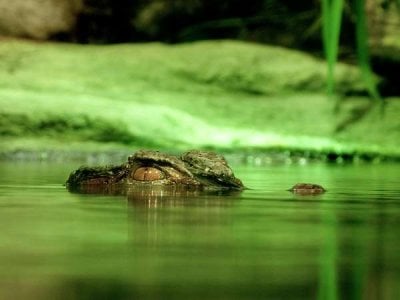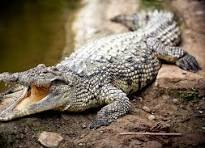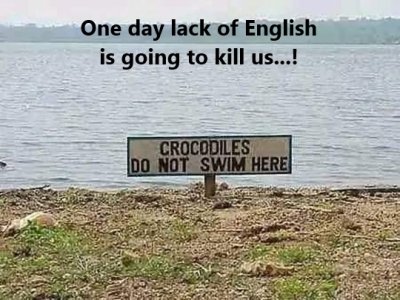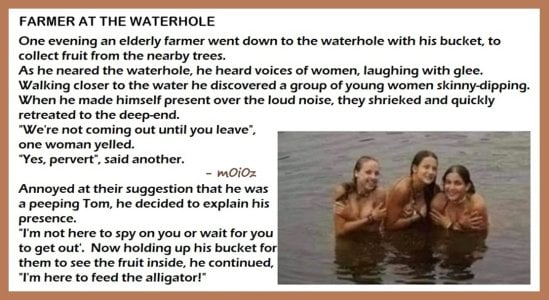Attention travellers: Discover the shocking post-attack duties that await if you ignore this crocodile warning!
By
Danielle F.
- Replies 18
Australia's rugged outback and lush riverlands are a sight to behold, but they're also home to one of the planet's most ancient and formidable predators: the crocodile. While these creatures are a marvel from a safe distance, the dangers they pose are all too real, and tourists are being urged to heed warnings to avoid tragic encounters and the harrowing aftermath that follows.
David McMahon, an experienced outback tour guide, has witnessed more than his fair share of risky behavior in crocodile territories. Speaking to Yahoo News, McMahon recounted alarming instances of tourists tempting fate at Cahills Crossing in the Northern Territory, a notorious hotspot for crocodile activity. From women casually posing for photos in ankle-deep water to visitors nonchalantly sipping beers beside the water's edge, these actions not only endanger lives but also place an immense burden on wildlife rangers.
The grim reality is that when a crocodile attack occurs, it's not just the victim who suffers. Rangers are tasked with the distressing job of recovering remains and locating the responsible crocodile, which often involves killing several crocodiles in the process. McMahon highlighted the emotional toll this takes on rangers, who must deal with the consequences of such avoidable incidents.
The dangers are not to be underestimated. The Northern Territory's Kakadu National Park, where Cahills Crossing is located, has recorded five deaths, with two occurring at the crossing itself. The tragic story of a 40-year-old tourist whose remains were found inside a crocodile in Queensland's Annan River serves as a stark reminder of the risks.
As members of the Seniors Discount Club, we urge you to take these warnings seriously when traveling in crocodile country. Always observe safety signs, keep a safe distance from the water's edge, and never underestimate the speed and power of these ancient reptiles. By respecting their habitat and exercising caution, we can avoid putting ourselves and the dedicated rangers who protect these areas in harm's way.

We invite you to share your thoughts and experiences on this topic. Have you visited crocodile-inhabited regions? How did you ensure your safety and that of your companions? Your insights could be invaluable to fellow travelers and wildlife enthusiasts. Email us at [email protected] or leave a comment below. Stay safe and enjoy the beauty of Australia's wild side responsibly!
David McMahon, an experienced outback tour guide, has witnessed more than his fair share of risky behavior in crocodile territories. Speaking to Yahoo News, McMahon recounted alarming instances of tourists tempting fate at Cahills Crossing in the Northern Territory, a notorious hotspot for crocodile activity. From women casually posing for photos in ankle-deep water to visitors nonchalantly sipping beers beside the water's edge, these actions not only endanger lives but also place an immense burden on wildlife rangers.
The grim reality is that when a crocodile attack occurs, it's not just the victim who suffers. Rangers are tasked with the distressing job of recovering remains and locating the responsible crocodile, which often involves killing several crocodiles in the process. McMahon highlighted the emotional toll this takes on rangers, who must deal with the consequences of such avoidable incidents.
The dangers are not to be underestimated. The Northern Territory's Kakadu National Park, where Cahills Crossing is located, has recorded five deaths, with two occurring at the crossing itself. The tragic story of a 40-year-old tourist whose remains were found inside a crocodile in Queensland's Annan River serves as a stark reminder of the risks.
McMahon, who has thankfully never had to retrieve a body himself, knows many rangers who have. He describes their frustration with the preventable nature of these tragedies, emphasizing that safety around crocodiles is straightforward if people would only pay attention to the clear warning signs.As members of the Seniors Discount Club, we urge you to take these warnings seriously when traveling in crocodile country. Always observe safety signs, keep a safe distance from the water's edge, and never underestimate the speed and power of these ancient reptiles. By respecting their habitat and exercising caution, we can avoid putting ourselves and the dedicated rangers who protect these areas in harm's way.
Key Takeaways
- An outback tour guide is warning tourists of the dangers of crocodile habitats and the 'gruesome' aftermath of attacks.
- Irresponsible behaviour near crocodile-infested waters not only endangers individuals but also causes distress to wildlife rangers who must recover remains and euthanise the involved crocodile.
- There have been recorded deaths at Cahills Crossing in Kakadu National Park, highlighting the seriousness of the risk.
- Despite the clear dangers and signage around crocodile habitats, people continue to act recklessly, causing frustration among rangers who emphasise that staying safe around crocodiles is 'extremely easy' with proper caution.











